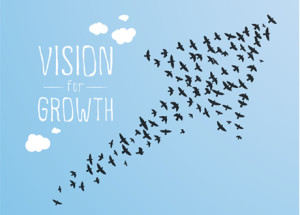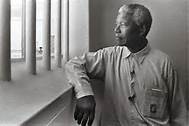* "Don't Stop Making Sense," September 2017, Grief Digest
Despite occasional downs and existential angst, we dare not stop trying to make sense of our son's loss. Or finding ways to patch things together and go forward.
* Sample posts from Ken's "Unspeakable Gifts" column in Psychology Today online
"Keep Turning" -- We are often amazed by people who show guts and grace as they face trials like incurable disease. Should we be?
"A Quandary of Loss" - Pondering survivor's guilt, a life unfulfilled after a friend's death
"Shuttered In" - It may seem easier to batten down our emotions about life's trials than face them. Yet keeping these feelings shut in has a cost.
"Puzzling Out Your Life's Work" -- See below
How do we find the courage to rebalance and make a shift?

Source: www.innovationmanagement.se
Do you ever feel that the universe is speaking to you, encouraging you to stay on the path you’re on?
Or telling you to change course, and get on with the true work of your life?
Lately I’ve been receiving enthusiastic signs.
For five years, I’ve been immersed in writing a book on a very difficult topic — about how people recover from sudden loss and other trauma to grow in positive ways as they attempt to make some sense of dark trials. Many of us have been in these trenches. My interest is in how we climb out.
I’ve found great joy putting this together and refining my writing. All despite encountering many self-doubts and other ups and downs in trying to craft my art. I’ve received some validation for taking this risk—not so much externally, though I believe that will come later when a reader finds something meaningful in my book to take away.
More keenly, I recognize a growing sense that I am on the right track. That my work is aligned with a vital purpose. Hopefully it’s the best I have to offer this world in this moment. More about this in a few minutes.
So how are you feeling about your life’s work? Who or what speaks to you?
Please click here to continue reading. This is one of Ken's monthly blogs on Psychology Today's website.
*****
“Mandela’s legacy: teaching Ubuntu,” The Huffington Post, December 6, 2013
I am a former teacher turned full-time writer and one day hope to return to the classroom. If I could inspire high school students to discover and apply one huge and empowering achievement of our time, I would point them to South Africa.
 To Nelson Mandela, revered as Madiba by his countrymen, and to something much bigger than him.
To Nelson Mandela, revered as Madiba by his countrymen, and to something much bigger than him.
I would tell them about the resurgence of Ubuntu to help that country heal after the dismantling of apartheid.
Ubuntu is an age-old cultural world view shared by many African societies which highlights the essential unity of humanity. This view holds that all members of a community are linked together, be they rich or poor, victims or perpetrators, and it holds profound implications for peacemaking and conflict resolution. Ubuntu emphasizes empathy, cooperation, and sharing over retribution and competition, and inclusivity over exclusivity.
Ubuntu "is to say, 'My humanity is caught up, is inextricably bound up, in theirs. We belong in a bundle of life.'"
Without this grounding, South Africans could not have attempted to repair themselves and renew their country in the same way. Following the ravages and atrocities of two world wars, the genocides in Europe, Cambodia and the former Yugoslavia, the ethnic purges, mass relocations and brutal dictatorships on almost every continent, in a nation most ripe for violent retaliation among blacks and whites, there was largely reconciliation -- and even forgiveness.
Apparently Ubuntu is difficult to convey fully in a Western language. Yet Desmond Tutu, Archbishop of Cape Town and the country's spiritual leader at the time, explained that Ubuntu "is to say, 'My humanity is caught up, is inextricably bound up, in theirs. We belong in a bundle of life."
*****
Brack is a contributor to The Huffington Post’s Education section, including a recent article about student activists raising awareness of campus sexual assaults, a movement with a compelling story that is chronicled in his upcoming book, Especially For You.
“Campus sexual assault survivors pushing harder for awareness,” February 6, 2014
For Laura Dunn, this hasn't exactly been a winter of discontent.
Awareness continues to grow about the scourge of sexual violence on college campuses. More assault survivors are supporting each other to break the silence and challenge their universities' mishandling of complaints. Reports of rape given to institutions have risen dramatically -- by 34 percent between 2010-2012.
A new White House task force to prevent school assaults appears to have put the issue squarely on the front burner. And last week, a bipartisan group in Congress urged the Department of Education to meet a key demand by one of the growing numbers of student groups -- creating a public database that lists the government's enforcement actions and agreements reached with universities.
Media attention to what some call an epidemic -- hidden at times by low reporting rates, and contorted by stubborn norms about topics such as what informed consent means -- is helping to bring change.
Clarity rather than subterfuge. Accountability rather than denial. Transparency. Prevention.
Yet for some student activists and other advocates, it's nowhere near spring in any sense.
Read more here
******
